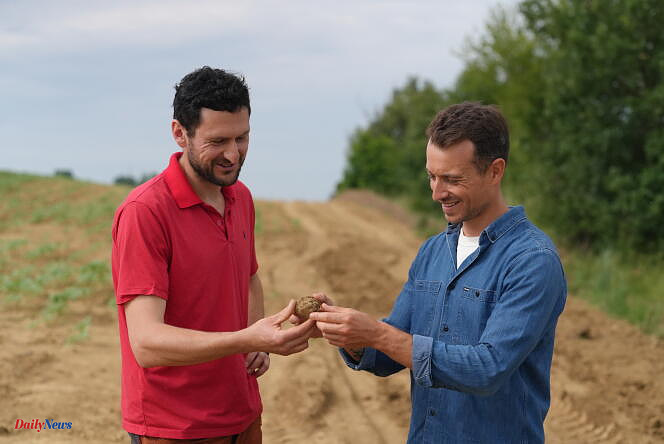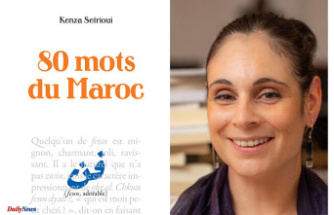With a handful of dry, lifeless earth in his hands, Hugo Clément is saddened not to see a single maggot moving there. However, the earthworm is the barometer of soil health. Its absence reflects a worrying observation: 89% of French agricultural soils are degraded, according to the European Soil Observatory.
The increasingly ironic tone of the presenter of On the Front can be exasperating. However, he is once again tackling a difficult subject – the impoverishment of the “earth that nourishes us”. Firstly because it is not easy to capture the attention of the general public by talking about earthworm droppings and human urine. Then because mentioning the National Federation of Farmers' Unions (FNSEA), the main agricultural union in France, is not without risk.
Let's start with earthworms. More and more voices – including literary ones, with Humus (L’Observatoire, 2023), by Gaspard Kœnig – are being raised to rehabilitate this extraordinary animal, capable of plowing and fertilizing the soil naturally. Among them, Céline Pelosi, research director at the National Research Institute for Agriculture, Food and the Environment: “I wanted to work on great apes; finally, I study earthworms and it fascinates me. » Her speech to the schoolchildren is well rehearsed, while she puts a maggot in each little hand.
Solution providers
On the screen, animated diagrams of soil sections link up with the investigations. These first detail the causes of impoverishment: plowing too deep, nitrogen fertilizers, pesticides, erosion. With consequences that go beyond agriculture, such as mudslides and green algae in Brittany.
Hugo Clément then sets off to meet solution providers, organic or conventional farmers, all fascinating and to be discovered in the reports. Let’s just point out that to restore the land, farmers must replant right after harvest, so that there is no more “bare soil.”
Hugo Clément was to film an inspection of this obligation by the departmental territorial management (DDT) of Chartres, in Eure-et-Loir – a department where part of Beauce extends with its extensive crops. But the shooting was canceled at the last minute. Reached by telephone, a person from the DDT explains to him that this “field crops” department houses the “slightly hardcore branch of the FNSEA”.
Under cover of anonymity, a controller will then confide in him that he is being pressured, “physical threats”. The journalist questions him: “Does the State really want to monitor compliance with the regulations? – No. – Is the nitrate directive which sets the maximum level of nitrogen respected? – No. »
However, according to Jonathan Kirchner, a smiling committed farmer from Occitania, “it takes around a century to replenish 1 centimeter of fertile soil”. Earthworms have plenty to do.












